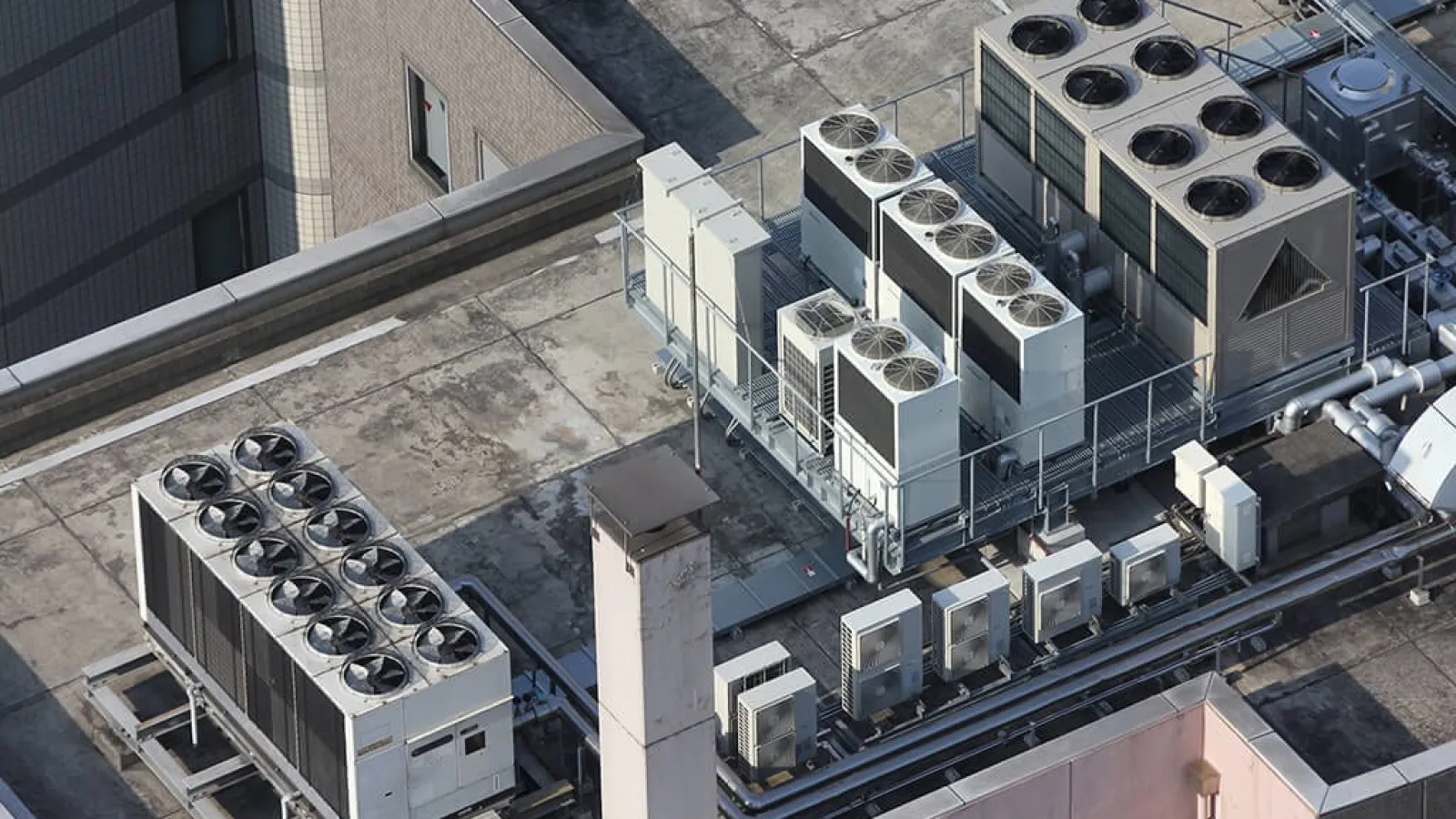In 2018, the Department of Energy (DOE) made changes to HVAC energy regulations, affecting Atlanta businesses. Do you know what the new HVAC energy regulations are and how they impact your company? Estes Commercial helps your business navigate the changes and make improvements if your facility does not meet the new code.
New Commercial HVAC Energy Regulations
The new commercial HVAC energy regulations affect all commercial rooftop heating and cooling equipment. Your business’s new heating or cooling system must meet the new minimum efficiency requirements.
This is the first phase of a multi-year plan, with the next phase occurring on January 1, 2023, that brings increased efficiency requirements. As of January 1, 2018, the DOE has adopted ASHRAE’s (American Society of Heating, Refrigeration, and Air-Conditioning Engineers) 90.1-2013 IEER (Integrated Energy Efficiency Ratio) standards.
IEER is a measure of cooling part-load energy efficiency ratio (EER) efficiency in commercial unitary air conditioning and heat pump units, based on their weighted operation at various loads. This measure was formerly referred to as IPLV.
As of 2018, the DOE efficiency standards for the following sized systems are as follows:
- 6-10 tons: 12.9 IEER
- 11-20 tons: 12.4 IEER
- 21-63 tons: 11.6 IEER
Specific minimum efficiency requirements by equipment type are found through the DOE website.
Meeting New HVAC Energy Regulations
Commercial heating and cooling equipment manufacturers have implemented new technology and other methods to ensure their equipment meets the new HVAC energy regulations. Technology incorporated into new commercial heating and cooling systems to comply with the new HVAC energy regulations may include:
- Multi-speed blower fans
- Multi-speed condenser fans
- Large coil heat exchangers
- Compression
- Controls
HVAC Energy Regulations Impacts on Atlanta Business Owners
The goal of the new HVAC energy regulations is to increase energy efficiency and lower heating and cooling usage by an estimated 1.7 trillion kWh over the coming three decades. The DOE estimates these changes have the potential to save the average business owner between $4,200 and $10,000 over the expected lifespan of a facility’s rooftop air conditioner alone.
These changes bring a potential higher initial cost of commercial heating and cooling system purchases. Expectations of the higher efficiency ratings in new systems include significantly lower operation costs. These improvements provide a quick payback period and more savings over the system’s life.
While a higher upfront cost may not be budget-friendly, the new tax code changes provide advantages when your business installs a new commercial heating and cooling system. This may help your business make capital improvements more affordable.
With a larger heat exchanger surface used in some units for compliance, your new commercial heating and cooling unit may require a larger footprint. With rooftop units, the structure needs to be sound and able to support additional weight, as well as space be available for installation.
Let Estes Commercial Be Your Guide for Heating and Cooling
Estes Commercial helps Atlanta area business owners navigate the new HVAC energy regulations and ensure compliance. When we propose your new commercial HVAC system, we go through great lengths to ensure it complies. Count on Estes Commercial for quality and high-caliber services. We gladly consult and offer free second opinions and estimates.
So, contact us today to learn more for commercial HVAC needs in Kennesaw, Atlanta, Buckhead, Druid Hills, Decatur, Roswell, Peachtree City. You’ll also find us in Sandy Springs, Virginia Highland, Marietta, Dunwoody, Johns Creek, Midtown and Fayetteville.


